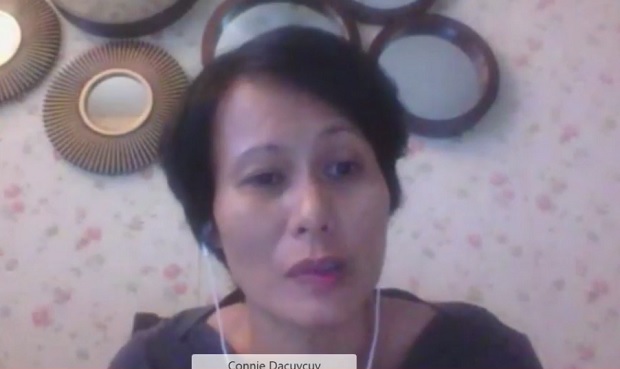Gender and other related issues in platform work in the country are likely to remain, if not widen, due to the lack of policies and programs for skills development and social protection.
Senior research fellow Connie Bayudan-Dacuycuy emphasized this at a recent webinar organized by state think tank Philippine Institute for Development Studies (PIDS) titled “Gender and Other Issues in Platform Work and ICT Use in the Philippines”.
In the study “Decent Work in Crowdwork: Gendered Takeaways from an Online Survey in the Philippines”, Dacuycuy noted that information and communications technology (ICT) paved the way for the development of digital labor platforms, providing economic opportunities to Filipinos.
However, there are issues on the platform that give rise to inequalities in decent work such as the absence of platform-led skills and career development for workers.
Dacuycuy said skills development has “a critical role in securing a job on the platform, in getting one that has higher value-added, and on the sustainability of platform work”.
Similar to workers in a standard work setting, platform workers also need to demonstrate certain expertise on both hard and soft skills. However, they bear the costs of training and learning investments to sustain work and remain competitive.
Moreover, PIDS research fellow Aubrey Tabuga, also a presenter at the webinar and author of the study titled “Filipinos’ Access and Exposure to ICT: A General Overview based on the National ICT Household Survey”, emphasized the need to improve workers’ knowledge and skills on ICT and the internet to maximize the gains from digital labor platforms.
Based on the National ICT Household Survey, 51 percent of the respondents do not use the Internet due to lack of knowledge on what it is and how to use it while 31 percent do not engage in online work due to lack of knowledge or skills.
Another issue identified is the absence of or limited social protection coverage for platform workers. Unlike workers in a standard work arrangement, Dacuycuy said they do not have the same entitlements since they are classified as contractors or self-employed workers.
Based on the study, platform workers do not avail of pension funds and private health insurance due to budget constraints and the lack of stable income.
This was supported by Tabuga, who pointed out that many online entrepreneurs are informal workers so they are not motivated to enroll in social protection services.
To address these issues, Dacuycuy and Tabuga provided some recommendations.
They urged the government to conduct a national initiative related to skills and training systems.
According to Dacuycuy, there is a need to bring together private and public providers to serve the demand for skills and training. She also suggested building on existing programs and initiatives, such as the Philippine TalentMap Initiative and the digitaljobsPH program, which could be used to design a comprehensive and integrated skills system.
Tabuga, for her part, said that efforts should be made to “improve ICT access and to encourage people to utilize ICT more”.
In terms of social protection, Dacuycuy said the issues could be addressed “by combining contributory and non-contributory schemes to finance a universal social protection”.
Tabuga added that social protection access could be broadened among online platform users through the government’s partnership with online platforms.




